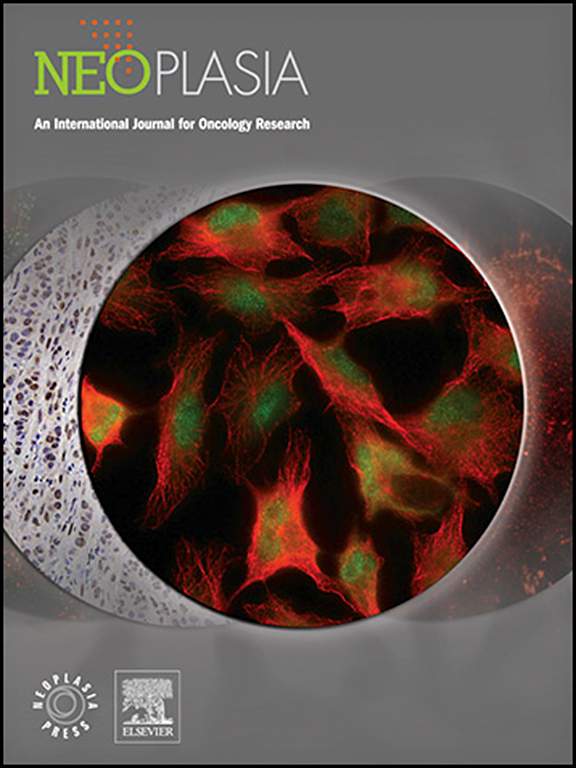DHX34缺陷通过dsrna介导的I型干扰素通路激活在HCC中触发肿瘤固有免疫
IF 7.7
2区 医学
Q1 Biochemistry, Genetics and Molecular Biology
引用次数: 0
摘要
肿瘤通常通过削弱微环境中的免疫原性来逃避免疫监视。DHX34是一种参与无义介导的mRNA衰变途径的RNA解旋酶,对异常RNA降解至关重要。然而,DHX34在肝细胞癌(HCC)中调节免疫原性的作用尚不清楚。在这里,DHX34在抑制HCC免疫原性中具有令人惊讶的功能。激活的T细胞浸润dhx34缺陷肿瘤,损害肿瘤生长,提高小鼠存活率。在机制上,DHX34的缺失触发了dsRNA的积累,这可能激活细胞质内rna感应通路效应物,如MAVS、p-IKK、p-IRF3,以及随后的i型干扰素反应,引发肿瘤固有免疫并导致CD8 T激活。总的来说,DHX34作为一种调节因子,通过抑制dsrna驱动的先天免疫激活来协调HCC中的屏障。靶向DHX34可增强肿瘤免疫原性并与免疫疗法协同作用,为HCC的治疗提供了一种新的治疗策略。本文章由计算机程序翻译,如有差异,请以英文原文为准。
DHX34 deficiency triggers tumor-intrinsic immunity via a dsRNA-mediated type I interferon pathway activation in HCC
Tumors often evade immune surveillance by crippling their immunogenicity in the microenvironment. DHX34, an RNA helicase involved in nonsense-mediated mRNA decay pathway, is critical for aberrant RNA degradation. However, the effect of DHX34 in regulating the immunogenicity in hepatocellular carcinoma (HCC) is still unclear. Here, a surprising function of DHX34 in inhibited HCC immunogenicity is identified. DHX34-deficient tumors were infiltrated by activated T cells that impaired tumor growth and enhanced survival in mice. Mechanistically, DHX34 depletion triggered dsRNA accumulation which may activate cytosolic RNA-sensing pathway effectors such as MAVS, p-IKK, p-IRF3, and the subsequent type-I interferon response, evoking tumor-intrinsic immunity and leading to CD8 T activation. Collectively, DHX34 is implicated as a regulator that orchestrates a barrier in HCC by suppressing dsRNA-driven innate immune activation. Targeting DHX34 may enhance tumor immunogenicity and synergize with immunotherapies, offering a novel therapeutic strategy for HCC.
求助全文
通过发布文献求助,成功后即可免费获取论文全文。
去求助
来源期刊

Neoplasia
医学-肿瘤学
CiteScore
9.20
自引率
2.10%
发文量
82
审稿时长
26 days
期刊介绍:
Neoplasia publishes the results of novel investigations in all areas of oncology research. The title Neoplasia was chosen to convey the journal’s breadth, which encompasses the traditional disciplines of cancer research as well as emerging fields and interdisciplinary investigations. Neoplasia is interested in studies describing new molecular and genetic findings relating to the neoplastic phenotype and in laboratory and clinical studies demonstrating creative applications of advances in the basic sciences to risk assessment, prognostic indications, detection, diagnosis, and treatment. In addition to regular Research Reports, Neoplasia also publishes Reviews and Meeting Reports. Neoplasia is committed to ensuring a thorough, fair, and rapid review and publication schedule to further its mission of serving both the scientific and clinical communities by disseminating important data and ideas in cancer research.
 求助内容:
求助内容: 应助结果提醒方式:
应助结果提醒方式:


